Description
The Snow White Inspirations combine the fairy tale « Snow White » with mirror-symmetrical piano compositions by Victor Alcántara. The 16 pieces are published together with the illustrated fairy tale Snow White in a joint book (48 pages; click here for the digital PDF edition). Both in the piano pieces and in the fairy tale, which was written down by the Brothers Grimm in their collections of folk tales, the phenomenon of mirroring is a central aspect of the dramaturgy. The compositions intended for the intermediate level are inserted between certain passages of the illustrated text so that they can serve as an interlude when someone is reciting the fairy tale. They can also be played as individual pieces or combined into a suite, the total duration of all 16 pieces being approx. 18 minutes. (Mp3 recordings: click here).
The middle D (or Ab/G#) of the keyboard serves as the axis of topographical mirroring: If you play a chromatic scale synchronously with both hands in contrary motion starting from this center point, the fingers of both hands use simultaneously the same keyboard key type (black or white).
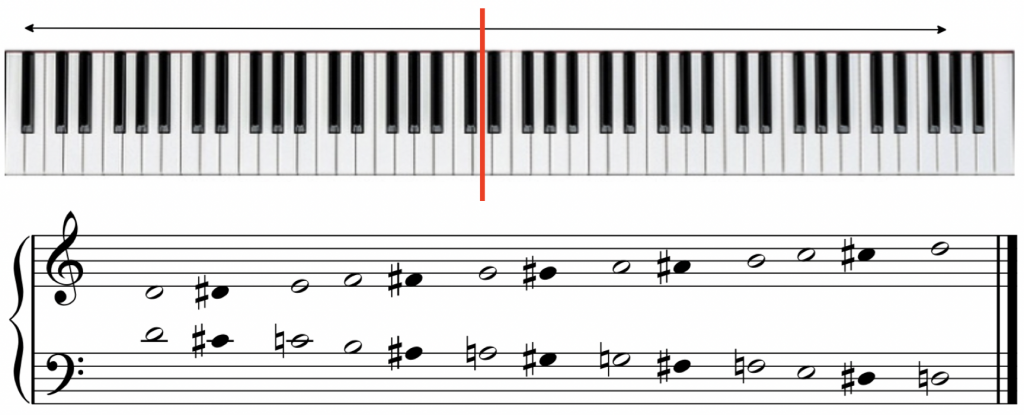
There are 3 basic ways to use the keyboard’s mirror symmetry in a piano composition as to be seen in the following video.
The decisive peculiarity of this type of piano playing is that both hands perform exactly the same, that is, mirror-symmetrical motions. But the Snow White Inspirations are not technical exercises. They are short musical scenes referring to the fairy tale. They are composed in such a way that they draw the listener’s attention to the mirror symmetry of the pieces only in a very subtle way. Thus, mirror symmetry is not an end in itself, but a means of artistic expression.
The Snow White Inspirations combine the fairy tale « Snow White » with mirror-symmetrical piano compositions by Victor Alcántara. The 16 pieces are published together with the illustrated fairy tale Snow White in a joint book (48 pages; click here for the digital PDF edition). Both in the piano pieces and in the fairy tale, which was written down by the Brothers Grimm in their collections of folk tales, the phenomenon of mirroring is a central aspect of the dramaturgy. The compositions intended for the intermediate level are inserted between certain passages of the illustrated text so that they can serve as an interlude when someone is reciting the fairy tale. They can also be played as individual pieces or combined into a suite, the total duration of all 16 pieces being approx. 18 minutes. (Mp3 recordings: click here).
The middle D (or Ab/G#) of the keyboard serves as the axis of topographical mirroring: If you play a chromatic scale synchronously with both hands in contrary motion starting from this center point, the fingers of both hands use simultaneously the same keyboard key type (black or white).

There are 3 basic ways to use the keyboard’s mirror symmetry in a piano composition as to be seen in the following video.
The decisive peculiarity of this type of piano playing is that both hands perform exactly the same, that is, mirror-symmetrical motions. But the Snow White Inspirations are not technical exercises. They are short musical scenes referring to the fairy tale. They are composed in such a way that they draw the listener’s attention to the mirror symmetry of the pieces only in a very subtle way. Thus, mirror symmetry is not an end in itself, but a means of artistic expression.
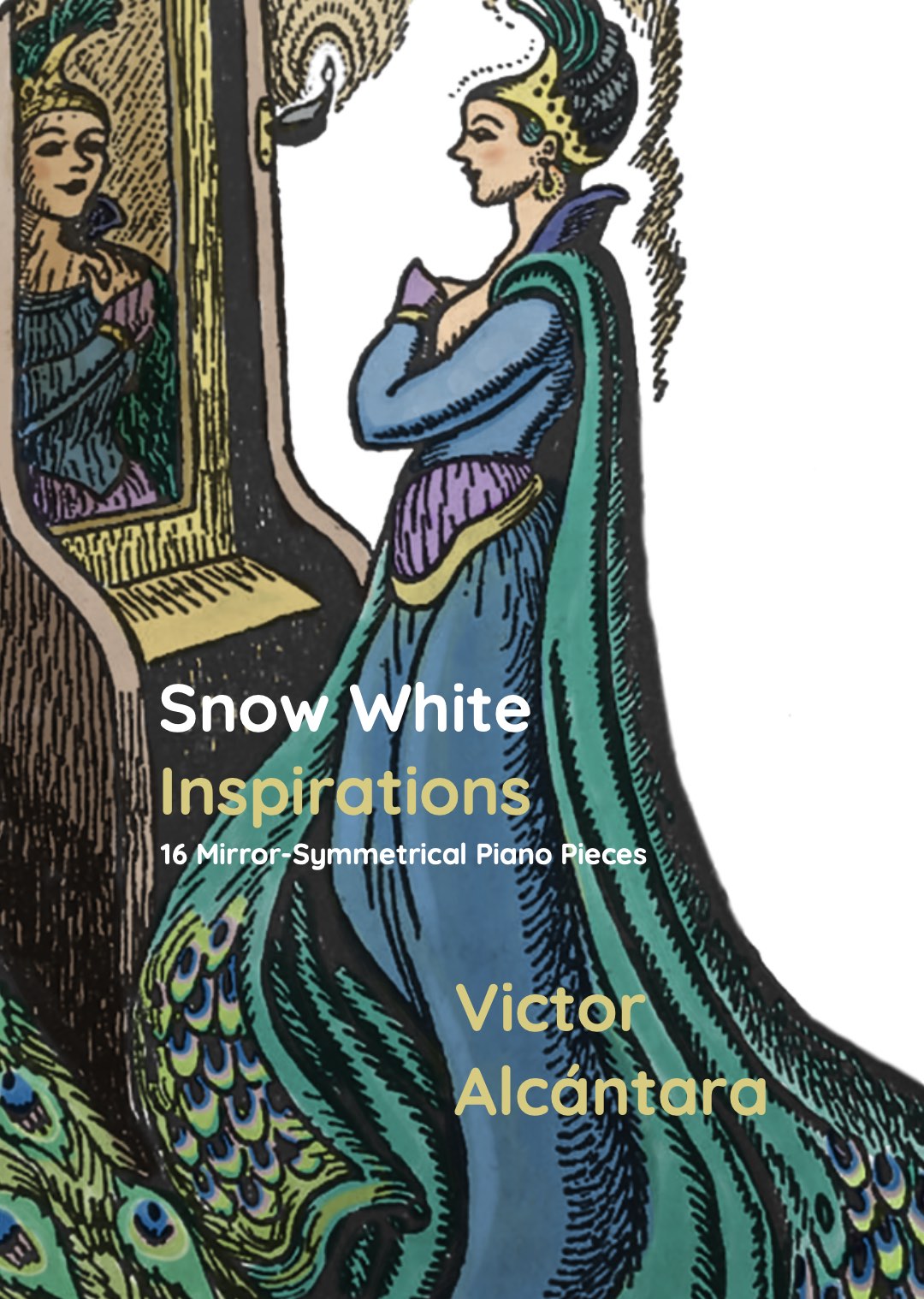
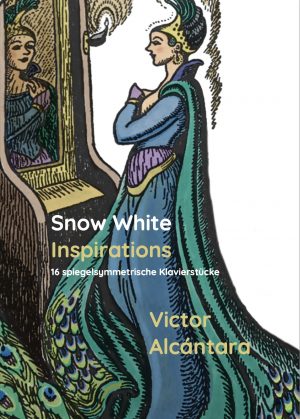
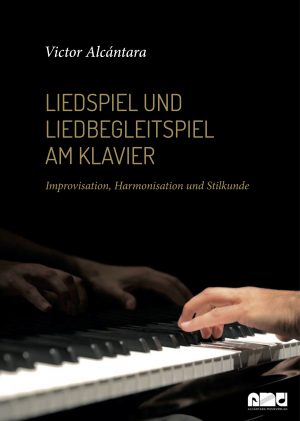
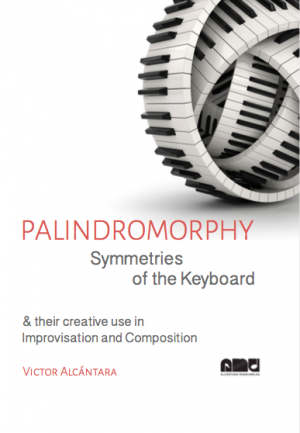
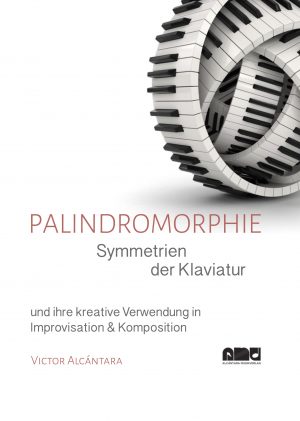
Avis
Il n’y pas encore d’avis.